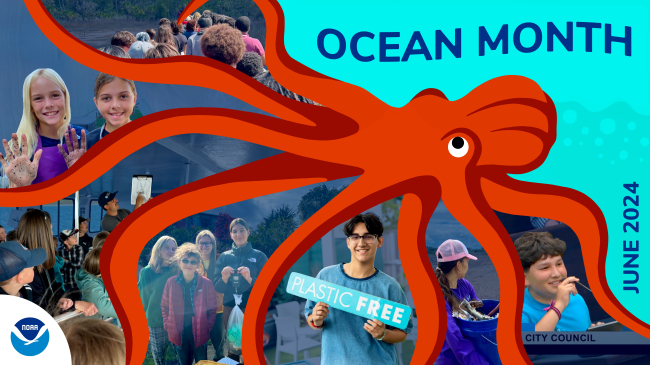The story of seafood does not begin once a product is harvested, nor does it end at the dinner table. In a recent panel, seafood farmers, chefs, educators, and regulators discussed how they can come together to tell the full story of seafood through aquaculture literacy.

A plate of farmed oysters and board of samples of farmed fish from Ivy City Smokehouse in Washington, D.C. (Image credit: Cindy Sandoval/Formerly NOAA Fisheries)
In April 2022, the Northeast Aquaculture Conference and Expo and the 41st Milford Aquaculture Seminar in Portland, Maine, brought together more than 500 aquaculture industry leaders, scientists, and ecosystem managers from across the country. NOAA’s Community of Practice for Aquaculture Literacy (CoPAL) facilitated a discussion about educating the public on seafood farming through collaborative partnerships.
Farmers are assets in their communities.
Many seafood farmers have found ways to creatively share their stories by integrating public outreach and education into their operations. For example, Dan Ward, owner of Ward Aquafarms, hosts on-site educational tours, supports and participates in local science fairs, and engages in town programs to educate the public on the benefits and challenges of using aquaculture as a “force of good,” as Ward calls it.
“All of us [farmers] are on the frontlines,” Ward said, “I take [public education] personally as an important part of what we do as farmers to make sure that the wider public understands what [we] do.” However, Ward went on to share that farmers can’t do it alone. “I’m only one person, and no matter how many farmers there are, I’m not going to be able to reach nearly as broad of an audience as a dedicated program to get that message out there.”
[Farmers] are out in the public sphere. I farm out in the ocean, but I don’t own the area underneath the farm that I have. It belongs to all of us, and I think it is part of our responsibility to educate the public about what we’re doing.
That’s where NOAA partners can help connect farms with community outreach and education. “We work very closely with our ferociously talented and dedicated network of Sea Grant extension agents who have muddy boots on most days of the week,” said Mark Rath, Aquaculture Manager at the National Sea Grant Office. “They’re in their communities, they’re talking to our growers, and they’re working together to solve problems and challenges.”
U.S. aquaculture is more sustainable than you think.
As a regional aquaculture coordinator at the NOAA Fisheries Greater Atlantic Regional Fisheries Office, Chris Schillaci helps farmers navigate the many regulations (e.g., The Clean Water Act, Marine Mammal Protection Act, and National Environmental Policy Act) that ensure U.S. seafood is farmed responsibly. This involves assessing everything from the moment a fish or shellfish is spawned in a hatchery to the truck that the farmer uses to transport their product and the potential impact those trucks are having on air quality. “There is not a more robust process that examines and pushes the producers of seafood in this country to be more sustainable,” noted Schillaci.
We need to do a better job of explaining the system involved in making domestic seafood production sustainable in engaging ways.

Over the past couple of decades, U.S. aquaculture has made significant improvements to its sustainability offsite link. But the panelists said that public perception hasn’t caught up. “We are up against a lot of news stories that talk about data that’s 20 years old,” said Schillaci. “Some of that information is from other countries that don’t have the same standards we do in the U.S. By working with NOAA’s Office of Education and Sea Grant, we can hopefully get this information out to folks and help communities understand that their concerns are being addressed prior to any permit being granted.”
Chefs are educators, too!
Restaurants are critical links in the chain of education, both for the chefs themselves and their customers. There’s a community connection that is made when chefs meet their customers at their tables — or in their homes through cookbooks — to use their dishes to tell the stories of local farms, working waterfronts, and food security. That is why chefs Barton Seaver offsite link and Jeremy Sewall offsite link ensure their menus and cookbooks include engaging content and stories that feature what’s beyond the recipes. Together, they are working to enhance the quality of seafood education opportunities in the culinary community. As Sewall put it, “We need to eat differently. We can’t eat the same stuff every day that we pull out of the water and expect it to be there forever.”
Oftentimes we get so wrapped up in aquaculture vs. wild-capture that we forget to understand: What is the purpose of this food system? It’s producing food. It’s meeting people where they are and sustaining them with healthy food.
Rath and Schillaci see opportunities for their work at NOAA to incorporate chef’s approaches to knowledge transfer — connecting over good food. When developing programs with extension agents, educators, and communicators, it can be challenging to overcome the misconception that seafood farming will outcompete wild caught fisheries. But as Rath and Schillaci see it, aquaculture can and should co-exist with wild capture fisheries. “We see space on everybody’s plates for sustainable seafood from all corners,” said Rath. “Domestic aquaculture is just one tool that we want to see made more common.”
Looking ahead at what's next.
When panelist Maggie Allen, NOAA Office of Education, asked about the future of chef communications and community storytelling, Seaver shared that he’s seeking ways to respectfully share stories of tribal, Native, and Indigenous populations and their seafood practices. In a previous panel facilitated by NOAA’s Community of Practice for Aquaculture Literacy (CoPAL), Native seafood experts highlighted the importance of integrating their important histories and expertise into the future of seafood education. Building on this, Seaver shared: “[It’s important for chefs to] understand that a lot of what we do has direct origination in Indigenous foodways, and how relevant and futuristic Indigenous knowledge is. I really hope to be doing a lot more with that.” shared Seaver, “With a lot more honesty, transparency, and respect, in ways that those cultures want light to be shone.”
There’s still a long way to go in educating the public about seafood farming. Together, seafood farmers, regulators, and chefs can ensure that the information they share with the public on their farms, in their restaurants, and through new policies is consistent and engaging. As Seaver put it: “Once we see a fishery or an aquafarm as a reflection of ourselves — as the sum of the labors of aspirations of a community — then we begin to see ourselves reflected in the products that they produce. That’s where collaborating on education comes in.”
Learn more about the panelists.
Maggie Allen - Education and Grants Specialist, NOAA Office of Education

Maggie Allen is an Education and Grants Specialist for NOAA’s Office of Education, where she helps manage grants for the Environmental Literacy Program and coordinates the Coastal Ecosystem Learning Centers (CELC) Network. For this latter partnership of 25 North American aquariums, she helped start an aquaculture education initiative designed to work with interested aquariums to better engage their visitors on the science, benefits, and challenges of sustainable aquaculture. Before her current role, Maggie was a Knauss Marine Policy Fellow with the same office, received a master’s in Marine and Environmental Affairs from the University of Washington, and conducted social science research with NOAA’s Northwest Fisheries Science Center.
Mark Rath - Aquaculture Manager, National Sea Grant Office
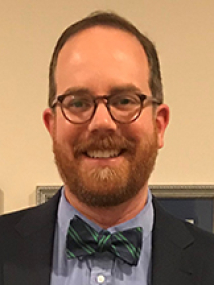
Mark Rath serves as the Aquaculture Manager at the National Sea Grant Office in Silver Spring, MD. He acts as a liaison between growers, scientists, regulators, and the public, placing him in a unique position to bridge science and practice. Prior to joining NOAA, Mark worked in several sectors of the aquaculture industry including food and ornamental fish production, restoration, public aquariums, agricultural extension and aquatic research models. He earned his M.S. in Aquaculture from the University of Maryland Marine Estuarine and Environmental Science program in 2004 and over the years has worked with many species of finfish and shellfish.
Chris Schillaci - Regional Aquaculture Coordinator, NOAA Fisheries
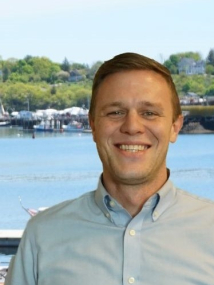
Chris Schillaci is an Aquaculture Coordinator in the Greater Atlantic Region, based in Point Judith, Rhode Island. Chris works with federal and state agencies, industry, and members of the scientific, academic, and NGO communities on a variety of marine aquaculture issues. Before Chris joined NOAA, he worked at the Massachusetts Division of Marine Fisheries for more than 10 years, where he first worked on a shellfish mitigation project in Boston Harbor, and then worked his way up to being state’s Aquaculture Program Leader and Vibrio Management Program Coordinator. Chris holds a Master's degree in Natural Resource Management and Environmental Conservation from the University of New Hampshire - Durham, and a Bachelor's degree in Conservation Biology from the University of Wisconsin-Madison.
Barton Seaver - Seafood Literacy Educator, Chef, and Author
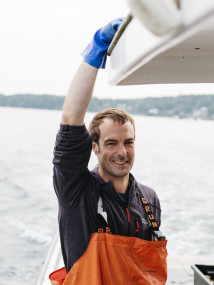
Barton Seaver is one of the world’s leading sustainable seafood experts and educators. Before leaving the restaurant industry to pursue his interests in sustainable food systems, he was an award-winning chef leading top seafood restaurants in Washington, DC. After traveling the world with the National Geographic Society, he translated his experiences into his leadership in the area of sustainable seafood innovations. As a member of the United States Culinary Ambassador Corp, Barton facilitates international conversations on sustainability and the role of food in resource management and public health. As the Director of the Sustainable Seafood and Health Initiative at the Harvard School of Public Health, Barton led initiatives to inform consumers and institutions about how our choices for diet and menus can promote healthier people, resilient ecosystems, more secure food supplies, and thriving communities. He also served as a Senior Advisor in Sustainable Seafood Innovations at the University of New England and as a Sustainability Fellow at the New England Aquarium.
An internationally recognized speaker, Barton has delivered lectures, seminars, and demos to a multitude of audiences. He has written seven seafood-centric books, including For Cod and Country, Two If By Sea, American Seafood and the forthcoming The Joy of Seafood. Seaver has contributed to Coastal Living, The Coastal Table, Cooking Light, Every Day with Rachael Ray, Fine Cooking, Fortune, Martha Stewart’s Whole Living, The New York Times, O: The Oprah Magazine, Saveur, the Washington Post, among many others. He has appeared on 60 Minutes, CNN, NPR, 20/20 and the TED Talk stage. Seaver hosted In Search of Food on the Ovation Network and Eat: The History of Food on National Geographic TV. He is the founder of Coastal Culinary Academy, a multi-platform initiative that seeks to increase seafood consumption through seafood-specific culinary education for all levels of cooks, which includes the online program SeafoodLiteracy.com.
Jeremy Sewall - Professional Chef and Owner, Row 34
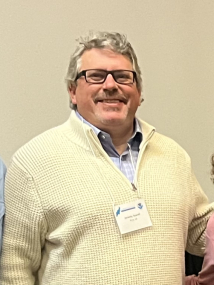
Jeremy started his career at the White Barn Inn in Kennebunkport Maine after graduating from the Culinary Institute of America. From there, Chef Sewall worked in Europe for Albert Roux then to Boston at the famed L’Espalier. Jeremy then moved to California to work at The Lark Creek Inn where he received his first James Beard nomination. Jeremy returned to Boston and finally achieved his dream of opening his own restaurant Lineage in Brookline, MA. After several years, Jeremy opened Island Creek Oyster Bar in Kenmore Square and then Row 34 offsite link in the Seaport area of Boston. In 2016 he authored the James Beard nominated New England Kitchen cookbook and most recently released the Row 34 cookbook in 2021. The fourth Row 34 is anticipated to open in 2023 in Cambridge, MA in Kendall Square.
Dan Ward - Shellfish Farmer, Researcher, and Owner, Ward Aquafarms
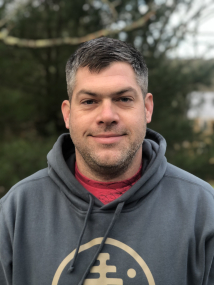
Dan Ward, Ph.D. is a seafood farmer, owner, and researcher at Ward Aquafarms & Hatchery offsite link with locations in Falmouth, Orleans, Bourne, and Wareham, Massachusetts. From growing steelhead trout to optimizing bay scallop farming techniques, Ward Aquafarms is continuously conducting research and sharing the results to expand and improve sustainable aquaculture and enhance public engagement. Much of the scientific work conducted by Ward Aquafarms is done in collaboration with other scientific groups as well as other farmers, commercial fishermen, Universities, towns, and government agencies such as NOAA and the United States Department of Agriculture.



